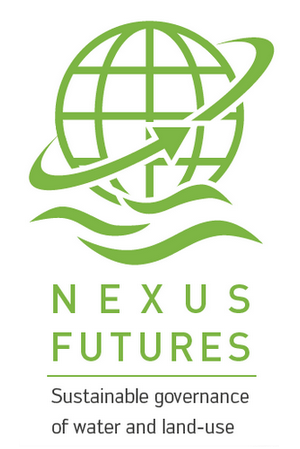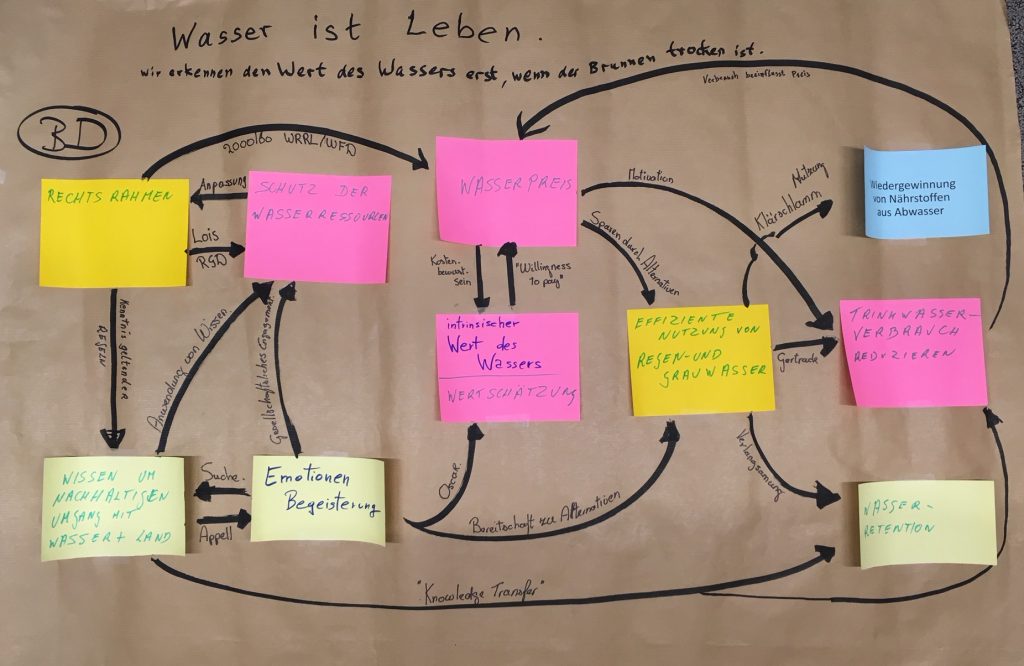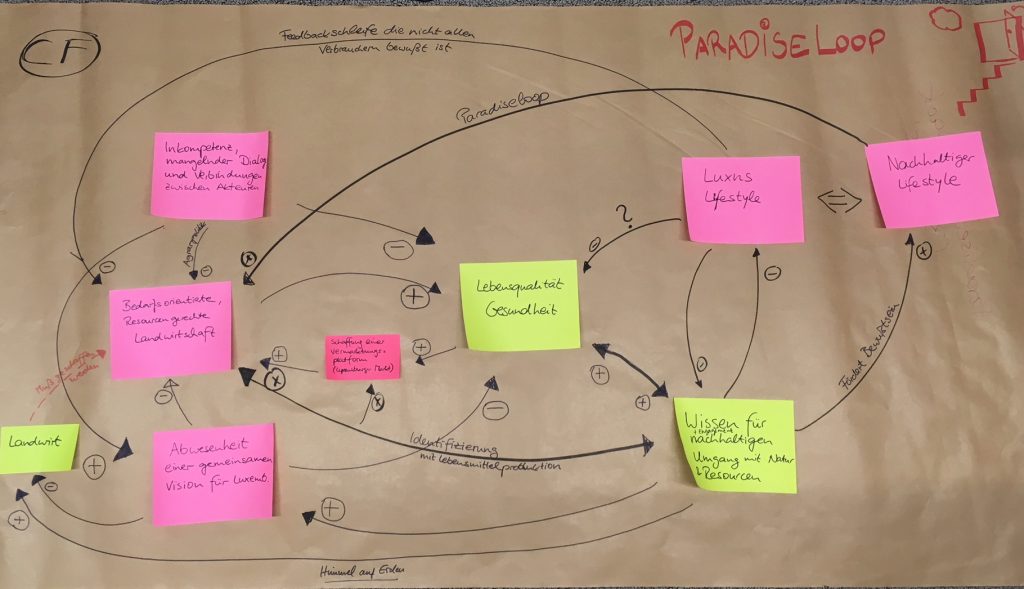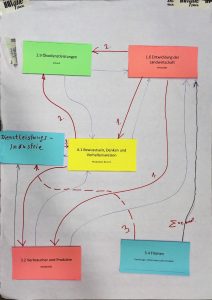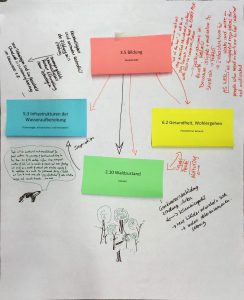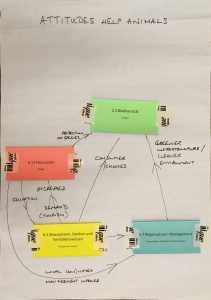Scenarios describe different possible futures. They allow stakeholders to identify challenges, uncertainties and conflicting goals that we face today in policy and practice. The scenario co-creation process is designed to systematically learn about and distinguish on which aspects of futures we might have some influence, and to what sort of changes outside of our realm of influence we may need to adapt. They also reveal potential opportunities for diverse actors in firms, public offices and households to organize themselves in a more sustainable and resilient manner in view of open, uncertain and possibly challenging futures. Through a participatory process, we explore the relationship between our conceptions of our social systems and structures, states of ecosystems, the material world and technologies, as well as our personal individual spheres including worldviews and values as basis of how we form our intentions and actions. The scenarios are co-created in a participatory process with empirical data derived from interviews, workshops and documentary studies.
Scenarios are always created as a set, in which each scenario illustrates how different prevailing world views and values may influence prevailing systemic and individual behaviours, the development of technologies and our built environment, the nature of our social structures and practices, as well as the state of our ecosystems. The scenarios are not meant to describe desirable futures, but instead they tell of plausible and at the same time challenging and in some aspects likely uncomfortable circumstances of a variety of possible futures. However, as a set they are complementary to each other and therefore can reveal that the future is open and that there is an infinite array of different complex development pathways, each amenable to some extent to human influence.
The fundamental underlying methods of the NEXUS FUTURES project, and in particular the national scenarios, provide an innovative bridge between research and practice. Thus, the project gives all participants the opportunity to gain new insights for their respective areas of practice, policy or research.
A total of 63 participants from a wide variety of organisations participated in the three workshops. The first workshop was held on 18th & 19th June 2018, the second on the 27th November 2018 and the final on 29th January 2019. The resulting narratives created by the workshop participants will now be enriched through collaboration with working groups and experts. The outcome of this process will be a rich set of plausible but challenging future scenarios for Luxembourg.

